Q&A: Alan Cumming
I think there are various different modes of knowing your roots and knowing where you come from. People are very conscious of wanting to understand where they belong and where their roots are and what their provenance is …
–
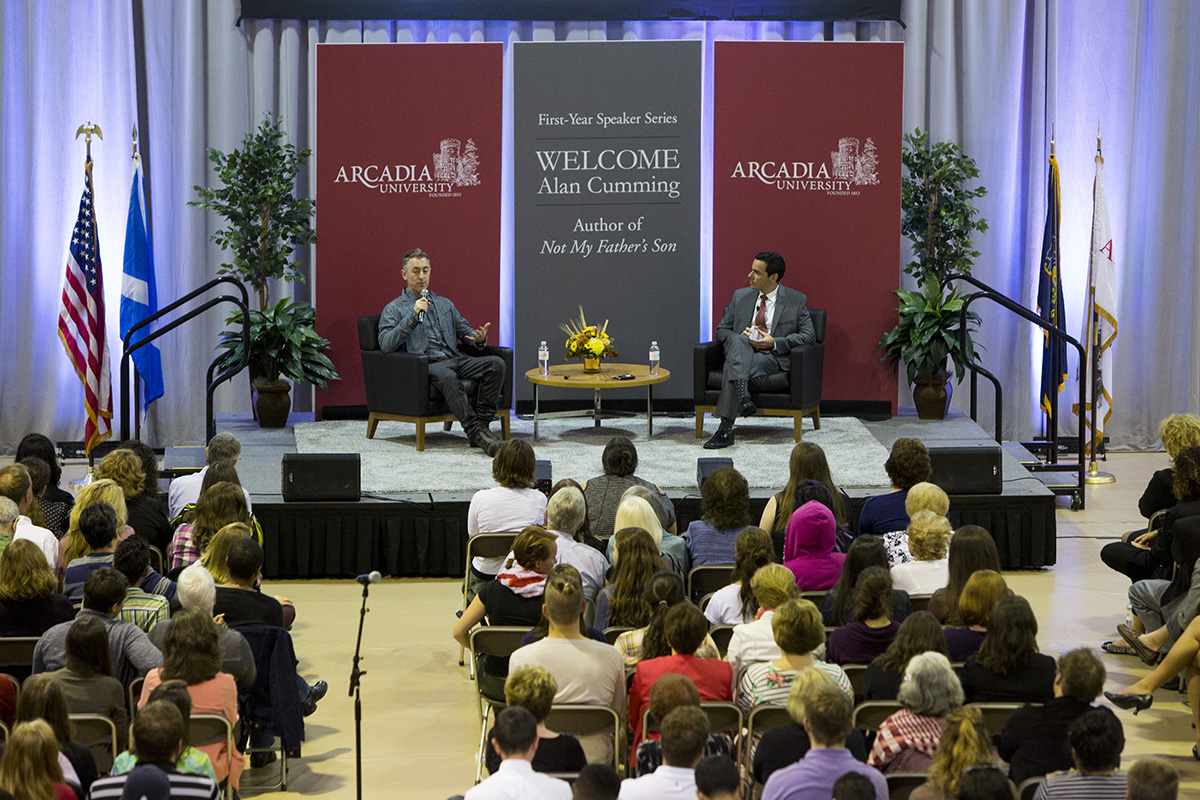
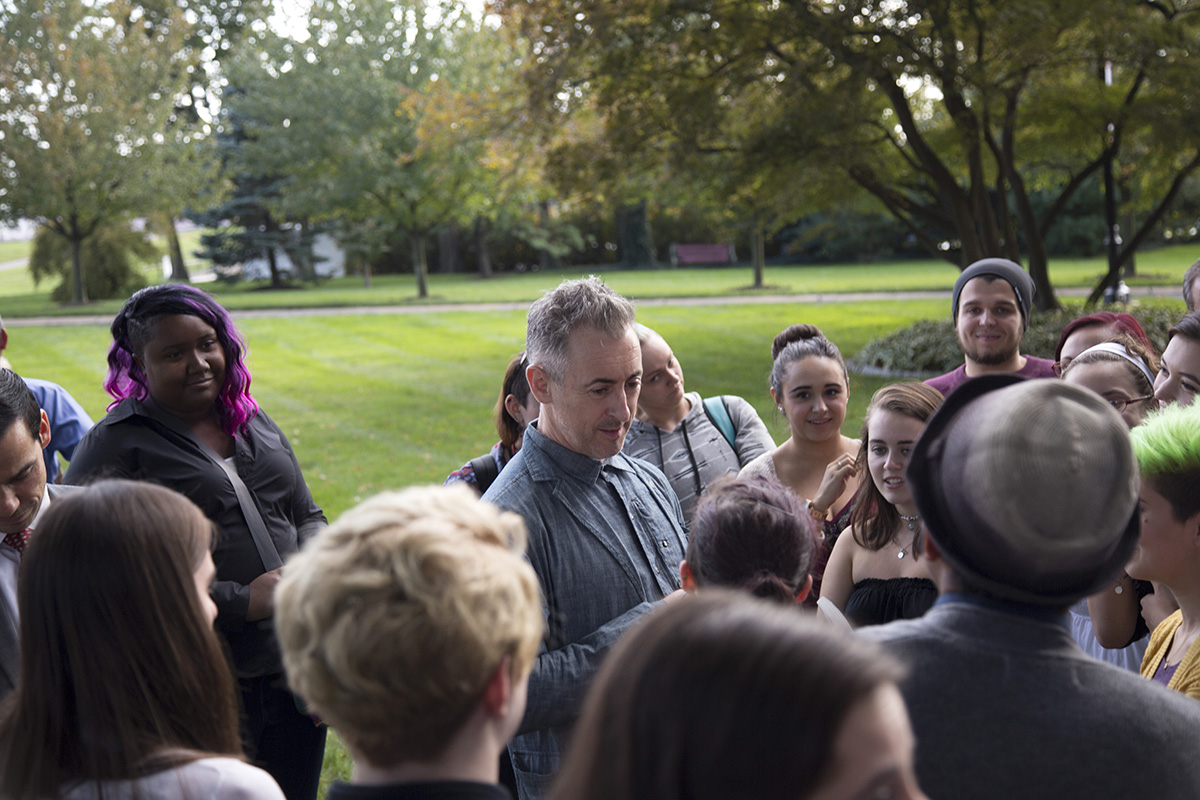
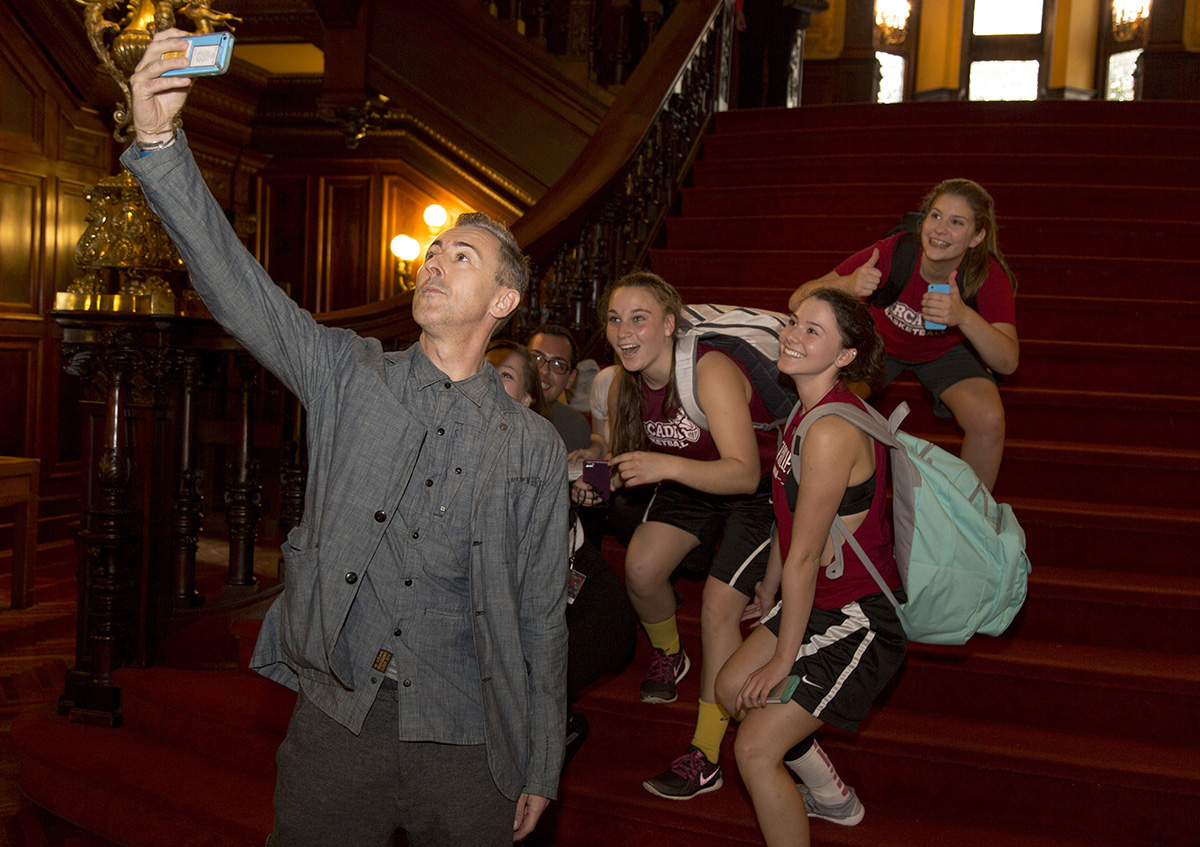
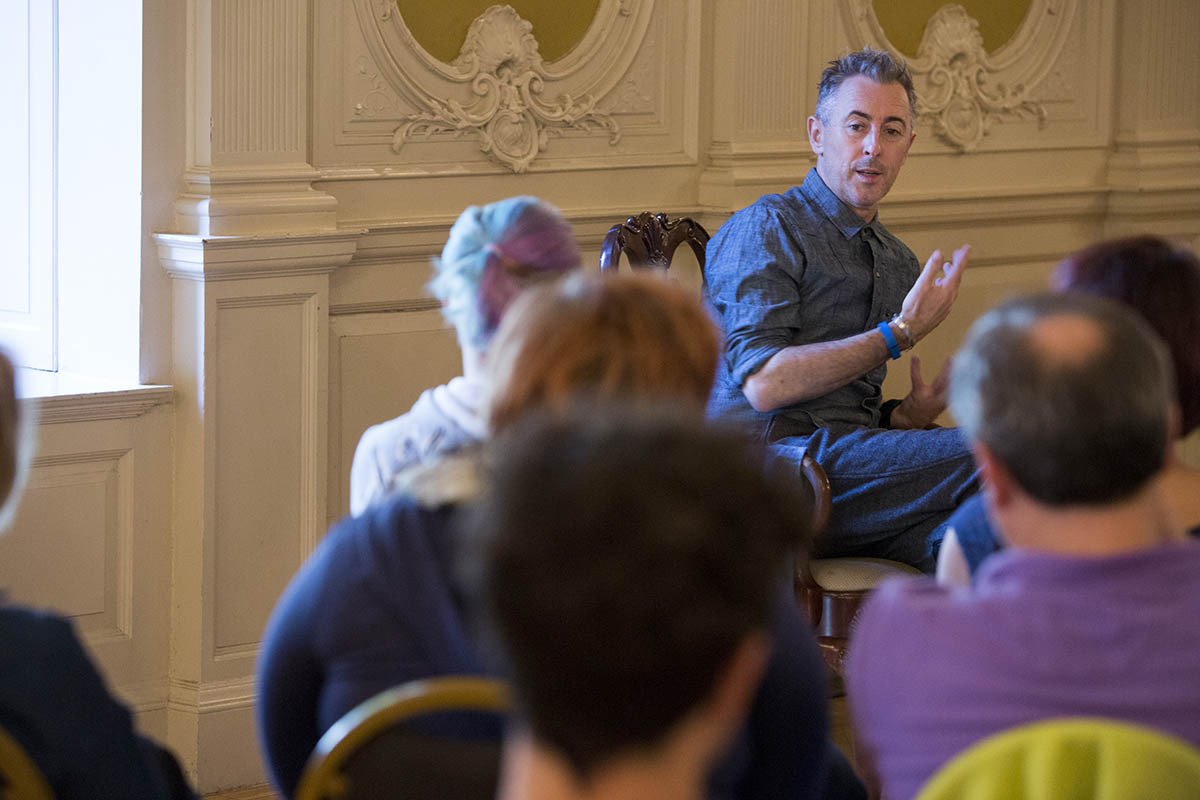
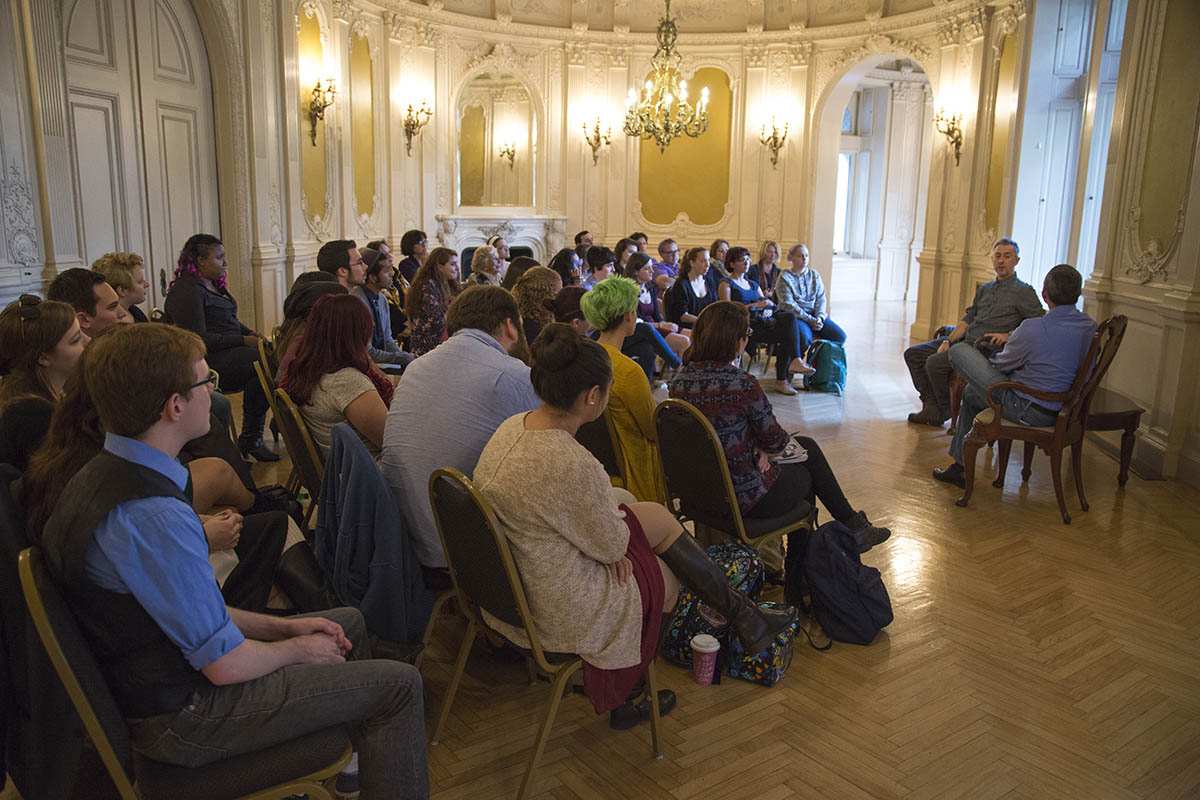
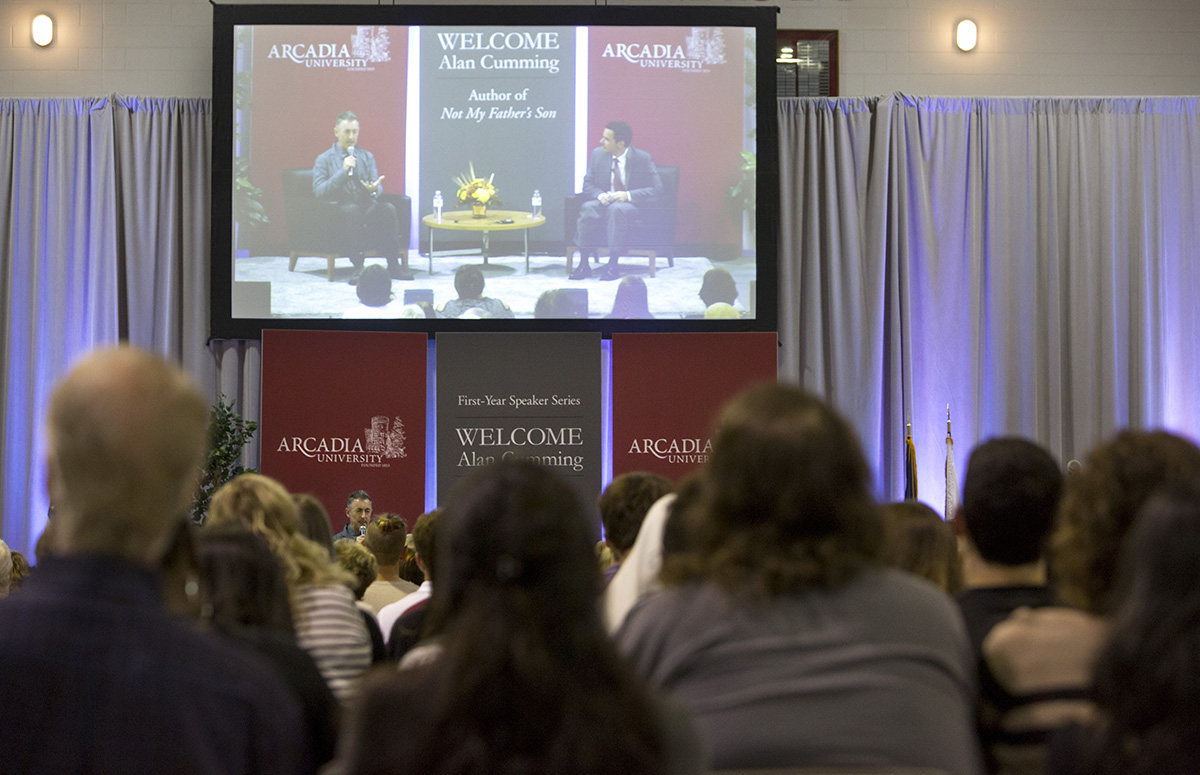
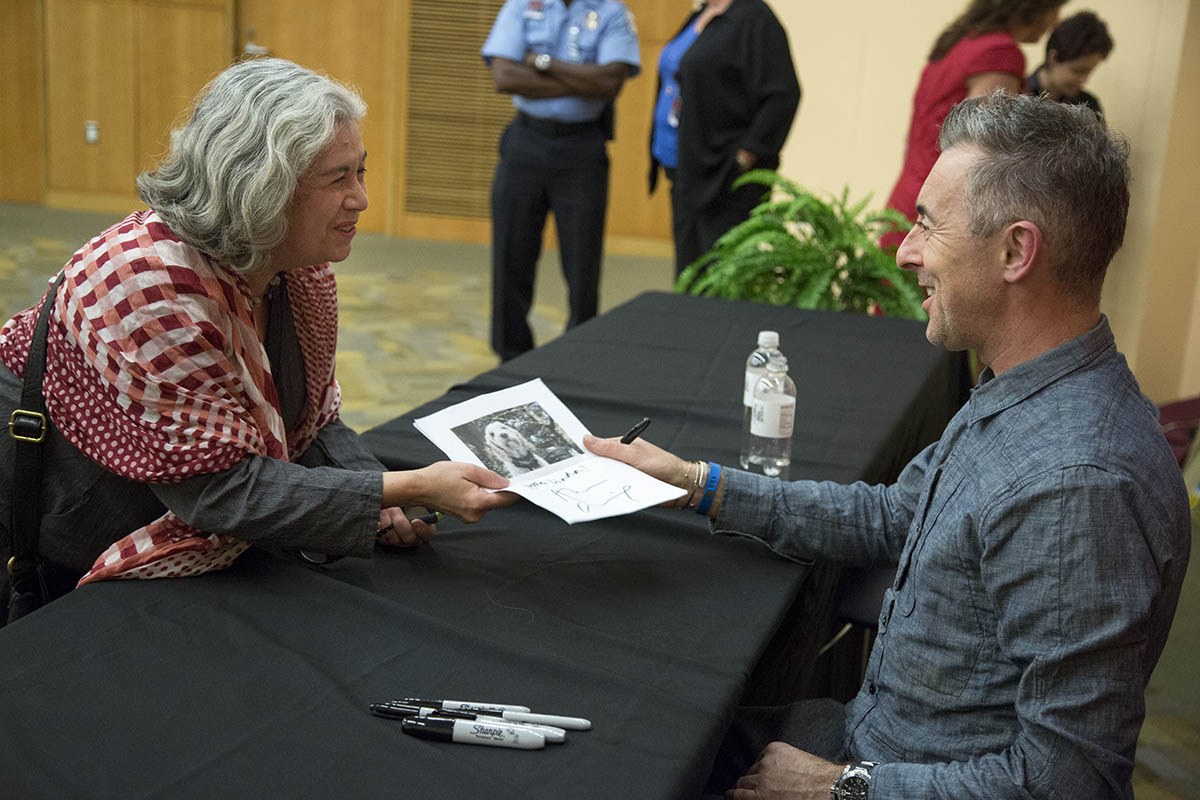
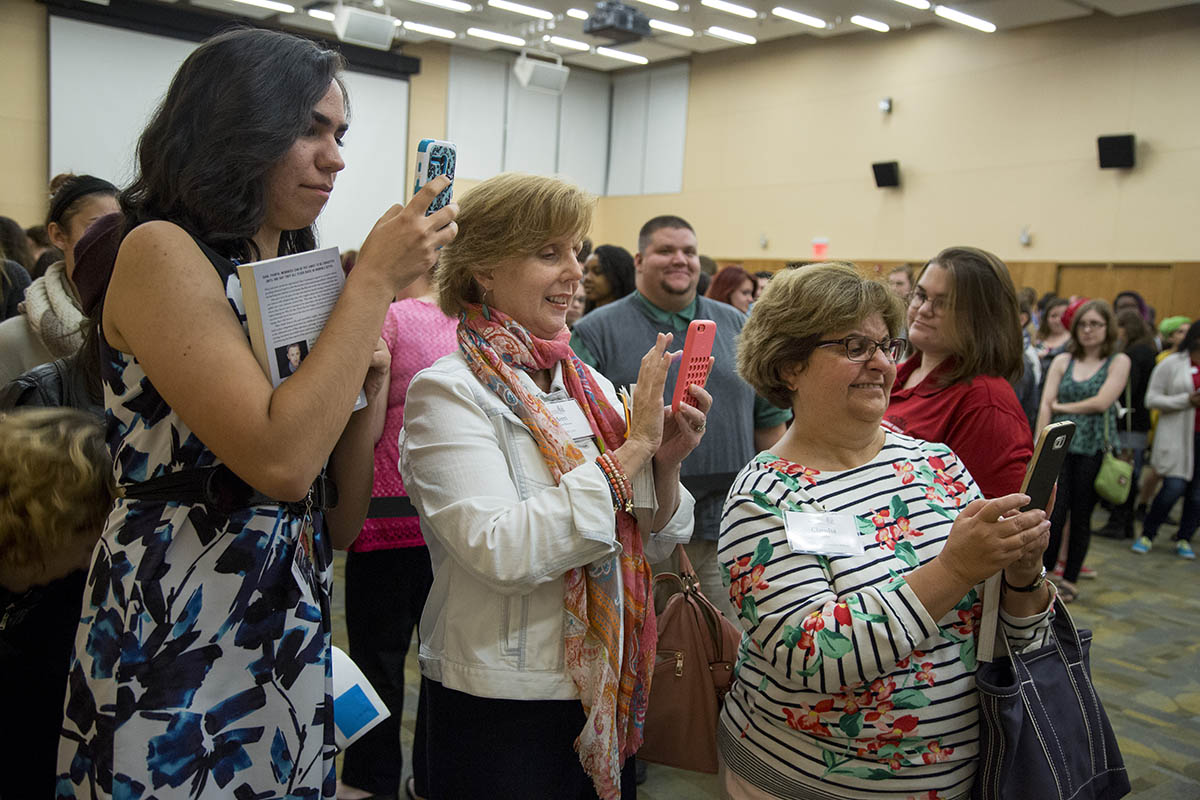
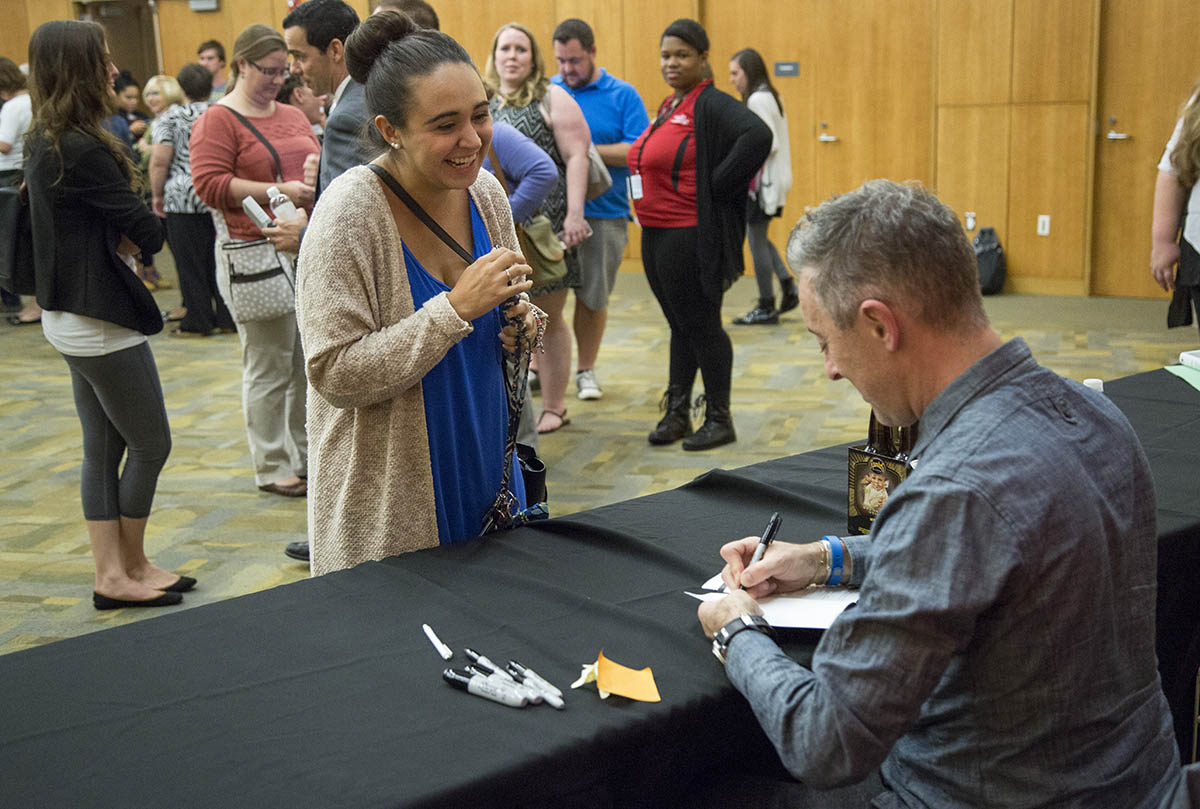
On Oct. 8, the Tony Award-winning, Emmy-nominated, New York Times-bestselling author Alan Cumming visited campus to meet with students and discuss his memoir, Not My Father’s Son, which was Arcadia’s First-Year Common Read selection. More than 1,200 students, alumni, and University community members attended the evening event, which featured Associate Professor of Theater Arts Jonathan Shandell and several first-year students posing questions to Cumming about his book, life, and career. The memoir recounts some of the abuse Cumming was subjected to by family members, in particular his father. Cumming took time to speak with Arcadia magazine and Helen Thompson ’18, a Print Communications major. Here is an excerpt from that interview.
Q. Some of these recollections and stories seem painful to address. Many people might keep such memories buried. Why share them with the world?
A. I wrote this book for a variety of reasons, but one of them was that I had this crazy series of events happen to me. Throughout my life, both in my writing and in my acting, I’ve had this drive toward being more transparent and more authentic. And that’s been in some of the work I’ve done, like The Anniversary Party, where Jennifer Jason Leigh and I wrote characters based on ourselves and other people in the film. Even in the Macbeth I did recently, there was an interesting crossover between people being worried about the character on stage but also being worried about me as a person. There is this kind of progression in my work to be more connected with people and to be more truthful and honest. I think when you’re famous, people know a lot about you, but they also know a lot of conjecture about you, and I feel that there’s a big part of my life that was much more prevalent and present for me because of those events in 2010. I decided that if I was going to tell a story about that summer and all the weird things that happened, I needed to go back to my childhood and be very, very frank about what happened. And I think now I’ve created something where people know me in a much more holistic way, and it’s only been a positive thing for me.
Q. Do you think that personal discovery, or knowing one’s roots, is important for all of us?
A. I think there are various different modes of knowing your roots and knowing where you come from. People are very conscious of wanting to understand where they belong and where their roots are and what their provenance is, and I think that’s a very good thing. In my case it wasn’t just, “I know where I’m from.” This was much more detailed behavior of my circumstances of my near relatives, and I think it’s always good to know the truth. But you have to be aware that there are some very, very painful things, potentially, on the road to truth. So it’s a bit of a lottery.
Q. One of the great things about Arcadia’s First-Year Common Read program is that a large portion of the community reads the same book and then engages in a lively conversation about it. What are your thoughts on your book inspiring so much discussion and thought?
A. Coming here is unusual because I’ve never come to a place where everyone’s read it. What I’ve found the most satisfying thing about my book is the idea that I’ve been able to say to people, “Hey, perhaps you’re surprised by my story, but actually I’m a survivor and terrible things happened to me but I overcame them and you can overcome things in your life, too.” In a way the journey of me writing the book has continued by having a discussion with other people about it.
Q. Is there any one thing in particular you would like students to take away from the book?
A. I would like people to take away the fact that what is really important is the idea of truth and authenticity, to not let bad things in your past cloud your vision, and the idea that it’s always really much better to know. I don’t think everyone is going to become a famous actor, necessarily, just because something bad happened to them, but it is possible to overcome great despair and great pain, and you really can turn things around. So I think it’s inspiring in that way.
Q. How difficult was it to write a memoir about something so personal?
A. It was difficult, [but] once I made the decision I was going to do it and I was going to be as frank and go as deep as I did, I stuck to my guns. Certain passages are very disturbing and were very disturbing for me to relive. I had to almost hypnotize myself to remember how afraid I was. Obviously, the whole book wasn’t like that. Some of it was very therapeutic in terms of just reliving a story and connecting the dots for myself. I think anything you do in an artistic endeavor, you’ve got to imagine the parts that are going to be difficult and painful and upsetting and the parts that are going to be surprisingly easy, but ultimately it’s going to be a catharsis and something you’re proud of. In terms of doing publicity tours, it’s good to have something to talk about that’s actually substantive.


